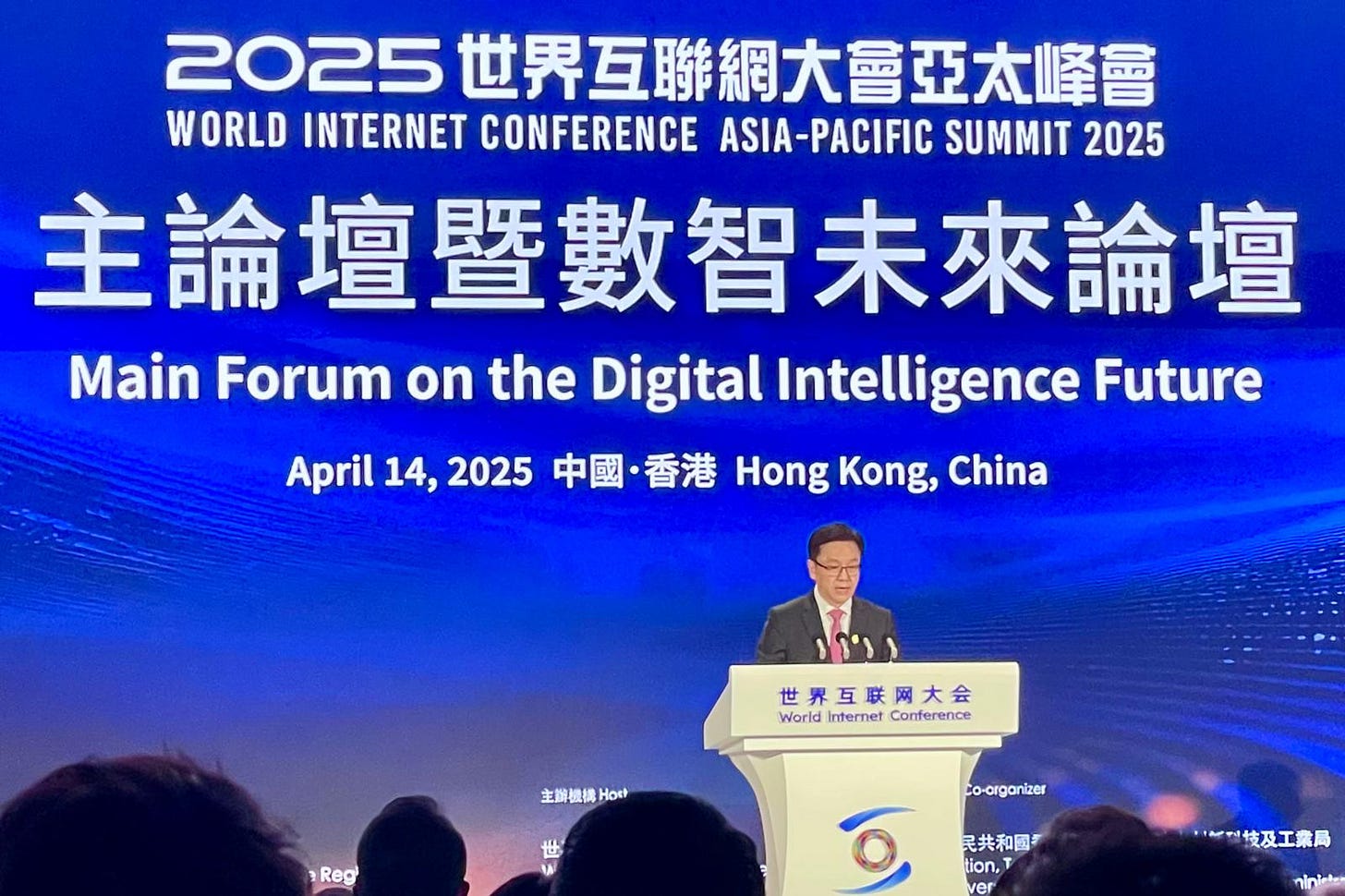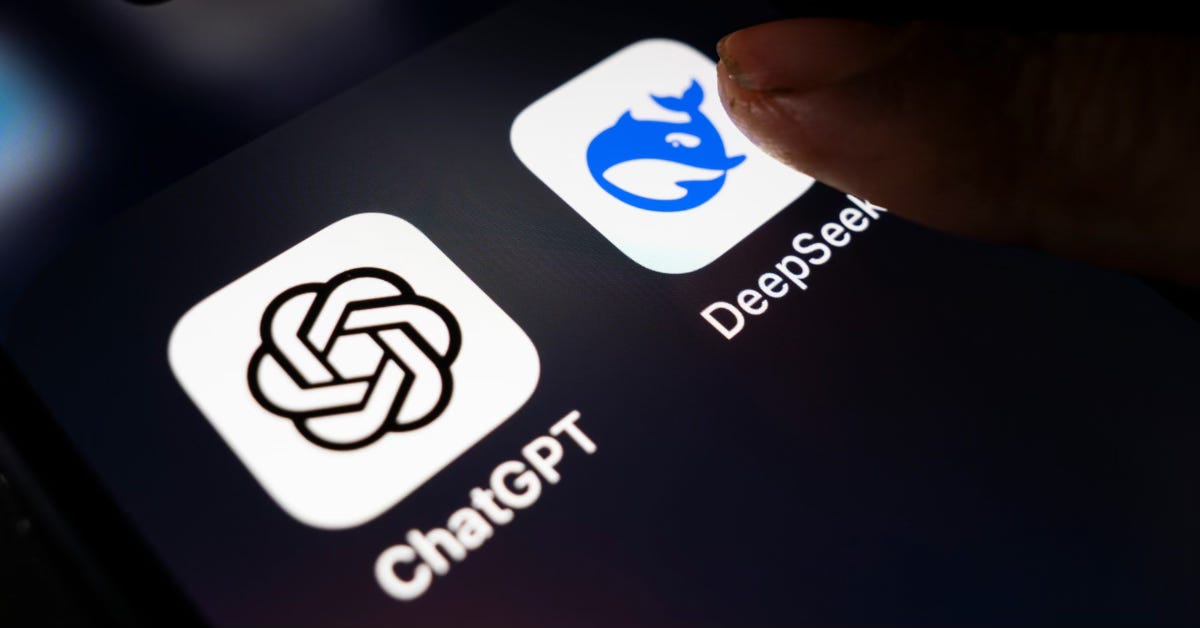AI Governance: An Arena of Strategic Competition Between Washington and Beijing
The United States and China seem poised to keep focusing on competition, complicating AI development and deployment for other countries in the Asia Pacific region.
Headsup: At the invitation of Center For International Security And Strategy at Tsinghua University in Beijing, China, I will give a talk on AI governance in the Asia Pacific region on May 13, 2025. If you happen to be in Beijing, I’d love to see you at Tsinghua. RSVP here.
As the world’s leading powers compete for dominance in advanced artificial intelligence (AI), Beijing and Washington are clashing over who gets to shape global standards and governance frameworks.
The White House is preparing to unveil its America First-style AI Action Plan, while China is actively courting support, particularly among Global South countries, for its own models of AI governance.
People familiar with China’s internet sector know about the World Internet Conference (WIC), a flagship initiative launched over a decade ago by former Cyberspace Administration of China (CAC) chief Lu Wei, who was later imprisoned for corruption. Following Lu’s downfall, the WIC lost some of its mojo for a few years, but it has since regained momentum as China’s leadership seeks to build international partnerships to counter U.S. influence in global internet governance.
When the internet was first developed in the early 1980s, China was still far behind technologically. The modern internet, as we know it today, was largely shaped by American standards and technologies. For instance, the foundational TCP/IP (Transmission Control Protocol/Internet Protocol) system that enables us to browse the web was created by three American engineers, including Vint Cerf who still works at Google. After missing the opportunity to play any significant role in the creation of the modern internet, China is determined now to seize its chance in the emerging era of AI.
Last month, Beijing chose Hong Kong to host the first Asia Pacific Summit of the WIC. Just like how baseball’s “World Series” excludes top teams from Japan and Korea, this "World Internet Conference" was missing key players, including the "Magnificent 7" group of leading American tech companies that includes Google and Meta.

Instead, Beijing welcomed regulators from Africa and Central Asia—regions integral to China’s ambitious "Belt and Road" initiative, which aims to establish a modern "Silk Road" to boost regional trade. Iran sent a senior representative from its information and communications technology (ICT) sector to the conference. Additionally, high-level officials from the International Telecommunication Union (ITU), the key global body for ICT standards, and the Asian Infrastructure Investment Bank were invited to attend and deliver speeches.
AI was the centerpiece of the Hong Kong event, with Chinese officials openly speculating about the competition between the United States and China for dominance in AI technology. One senior Chinese official confidently asserted that AI is not only about technological advancement, but also about how quickly it can be applied to achieve tangible economic impact.
Sun Weimin, Chief Engineer of the Cyberspace Administration of China (CAC), told the Summit that "a nation’s strength lies not just in being the first to invent a new technology, but in its ability to scale and effectively apply that technology across industries." She further emphasized that for AI, success depends "not only on how it is developed, but, more importantly, on how it is used, deployed, refined, and continuously improved through real-world applications."
Sun raises some valid points. While American engineers remain focused on AI research and development in their laboratories, their Chinese counterparts are collaborating with various industries to deploy AI in real-world applications. China aims to showcase the economic impact of AI first, with the expectation that other countries will eventually adopt the "China model" for AI governance.
In the China model, the government plays a central role in areas such as censorship, approval of AI models, and ensuring that AI aligns with the "right" ideological principles. In China, AI is not just about technology—it is also about ideology, as seen in the CAC’s proposed regulations on ensuring AI reflects the spirit of socialism with Chinese characteristics.
The Hong Kong government announced that this year’s Asia Pacific Summit of the WIC would become an annual event hosted in the city. Hong Kong has traditionally been a strong candidate for international gatherings, with its relatively open internet access remaining a key distinction.
Despite returning to Chinese sovereignty in 1997, Hong Kong maintains an open framework for internet access, allowing residents to freely access global apps and websites like Facebook and Google—services that have been blocked in Mainland China for years.
Even so, most of the regulators attending this "global event" were from China-friendly regions like Central Asia and Africa.
What does this all mean? Especially at a time when the United States is prioritizing an "America First" agenda, the world risks becoming increasingly divided and confused in the AI era. When the telephone was invented, the ITU played a crucial role in assigning country codes and setting foundational standards.
For AI, however, there is no institution like the ITU to ensure global alignment on standards. The United States and China seem poised to keep focusing on competition, complicating AI development and deployment for other countries.




